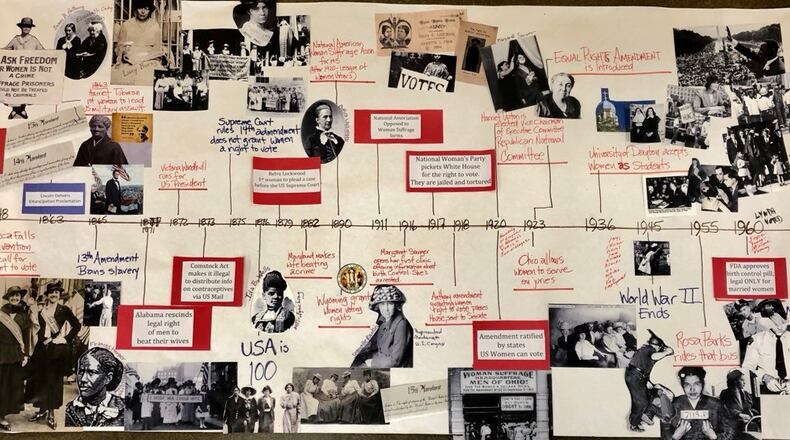In order to join these conversations, each woman had to bring another woman from the opposite political party, a woman whom they trusted both in word and heart.
Credit: Photo: YWCA Dayton
Credit: Photo: YWCA Dayton
The ground rules for the event and belief conditions we asked of this group included suspending judgment, assuming positive intent and trying to look at views with new possibilities. For one night, we asked that effort to make others feel safe, be heard and give hope to finding ways that we are united.
Opening questions included what could we do better together? What is “the work?” What issues affect us regardless of where we identify on the political spectrum?
Using a method of facilitation called “The Art of Hosting,” tabletop discussions posed open-ended questions to these women regarding what brought each woman to the discussion and what would keep them coming back.
The participants’ experiences, spanning four nights, within their self-identified political parties were as diverse as the 128 women in the room.
Political ideas that women were willing to walk across the aisle for included fair redistricting, campaign finance reform, limiting or eliminating lobbyists, time limits for campaigns and empowering women to assume political power. The No. 1 thing that constantly was agreed upon was civic education. Ideas women thought were held in common included addressing the opiate crisis, changing drug laws, education, health care and homelessness.
We had a timeline that was 10 feet long showing important moments in history.
Women were asked to plot when they first voted and tell the story of when politics first mattered to them. As we enter into the home stretch of a continuous presidential political race that remains polarizing, Women Stand for Common Ground@ demonstrated that we have far more in common than what separates us, and civil discourse when entered from a true heart of listening as opposed to teaching can result in a shared sense of purpose.
It is refreshing to hear people talk about the event three-plus years later.
Two women who attended the event ran for public office in the next local race and many additional conversations spun out of the original talks.
If you would like to get more information or if you would like to host one of these talks, you can reach me at mriley@thefoodbankdayton.org.
Michelle Riley is CEO of The Foodbank, a nonprofit and nonpartisan organization provides that he infrastructure for more than 100 member food pantries, community kitchens, and shelters that serve as the charitable hunger relief network in Montgomery, Greene, and Preble counties.
About the Author

